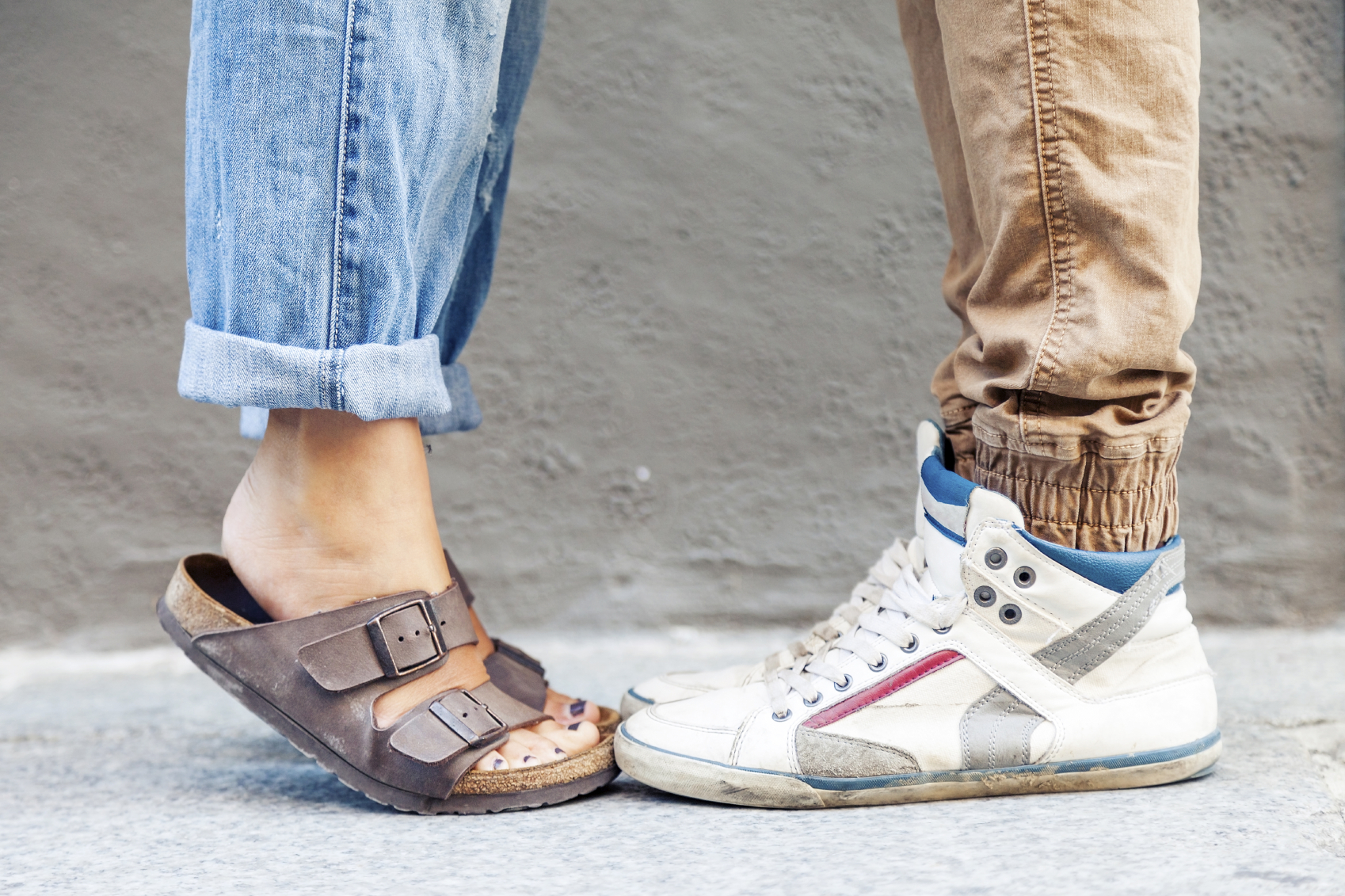The problem with 'boyfriend' jeans
What does it say about us that anything slightly big in women's fashion is "stolen from the boys"?


A free daily email with the biggest news stories of the day – and the best features from TheWeek.com
You are now subscribed
Your newsletter sign-up was successful
The majority of the patriarchy's most egregious features have been done away with in the past 50 years. American women can now have credit cards, refuse to sleep with their husbands, and call foul if they get fired for getting pregnant. Though while many of these larger indignities have, thankfully, faded into the past, we still spend our days inundated with smaller ones. Taken individually they are often nothing more than a nuisance. But put them together and they reveal the contradictions and absurdities behind our definition of femininity today.
There's perhaps no example better suited to illustrate these petty indignities than the phenomenon of using "boyfriend" to describe jeans for women, girls, and even infants. Are they a death knell for female confidence and ambition? Of course not. But each time I put them on, I stop and wonder how this subtle affront to my dignity has gone on so long.
The latest incarnation of the boyfriend jean trend first arrived over six years ago, a baggy alternative to the ubiquitous skinny jean. (Fashion observers credit Katie Holmes and her 2008 predilection for baggy, cuffed denim for launching the trend.) Shortly after these jeans were matched by boyfriend shirts, boyfriend blazers, and even boyfriend shoes. One could wear boyfriend from head to toe!
The Week
Escape your echo chamber. Get the facts behind the news, plus analysis from multiple perspectives.

Sign up for The Week's Free Newsletters
From our morning news briefing to a weekly Good News Newsletter, get the best of The Week delivered directly to your inbox.
From our morning news briefing to a weekly Good News Newsletter, get the best of The Week delivered directly to your inbox.
It took an inquiry from my husband to make me realize how ridiculous this whole thing really is. His sister mentioned that she wanted some skinny boyfriend jeans and he, confused, asked her to explain. She told him that women's jeans that are not skintight are labeled boyfriend, but sometimes the boyfriend jeans are too baggy, so now there are slimmer versions, which are still labeled boyfriend. He asked us whether or not we found this crazy. Now that he mentioned it, we did.
Here's what's so off about the boyfriendization of women's clothing: It implies that a woman should only wear baggy clothes after she has secured a mate. Before that we really should be showcasing one's body in more fitted apparel. This frames getting dressed as something that is done primarily for the male gaze, when most women know that, more often than not, we dress for ourselves and others. They also suggest that a woman should be straight, smaller than men, and young — older women tend to have husbands, wives, and partners. Imagine trying to explain this label to a first-grader. It's ridiculous.
When Amy Schumer did a parody of a young actress visiting a late night show, she perfectly captured what the whole boyfriend look is trying to achieve. When the host hands her his jacket after she complains about being cold she puts it on and giggles, "it's soooo big on me." She clearly thinks this is adorable, as does the inappropriately flirtatious host. The point? Diminutive is cute. Though you have to make sure to cuff a sleeve so everyone knows how tiny you really are underneath.
For years now, fashion magazines have done layouts featuring looks "borrowed from the boys," which is also slightly ridiculous but not nearly as offensive as "boyfriend. The notion of menswear, as opposed to womenswear, is still a reference point that holds water. Blazers, button-ups, and trousers continue to be items of clothing we associate with men, and there is no implication about one's romantic status, age, sexuality, or body type.
A free daily email with the biggest news stories of the day – and the best features from TheWeek.com
Still, like boyfriend, these gender labels are starting to seem, as fashion editors might put it, very last season. Forward-thinking fashion companies like La Garconne and rag & bone have inspired a generation of women whose look is far more Patti Smith than Marilyn Monroe (present company included), and The New York Times just reported on the rise of unisex labels. No, this isn't the first time androgyny has come in style. Just think of '60s and '70s icons like David Bowie, Mick Jagger, and the aforementioned Smith, all of whom borrowed heavily from the other side.
The difference now is that we are in a moment in which the conversation about gender fluidity, pansexuality, and trans acceptance has hit the mainstream. In this context, the gender-benders of today seem to be less interested in trying to stand out or shock others (like Bowie surely did), and more driven by a desire to dress in a way that just feels right. All this makes the ubiquitous "boyfriend" label even more of anachronism. Time to lay it to rest.
Elissa Strauss writes about the intersection of gender and culture for TheWeek.com. She also writes regularly for Elle.com and the Jewish Daily Forward, where she is a weekly columnist.
-
 Labor secretary’s husband barred amid assault probe
Labor secretary’s husband barred amid assault probeSpeed Read Shawn DeRemer, the husband of Labor Secretary Lori Chavez-DeRemer, has been accused of sexual assault
-
 Trump touts pledges at 1st Board of Peace meeting
Trump touts pledges at 1st Board of Peace meetingSpeed Read At the inaugural meeting, the president announced nine countries have agreed to pledge a combined $7 billion for a Gaza relief package
-
 Britain’s ex-Prince Andrew arrested over Epstein ties
Britain’s ex-Prince Andrew arrested over Epstein tiesSpeed Read The younger brother of King Charles III has not yet been charged
